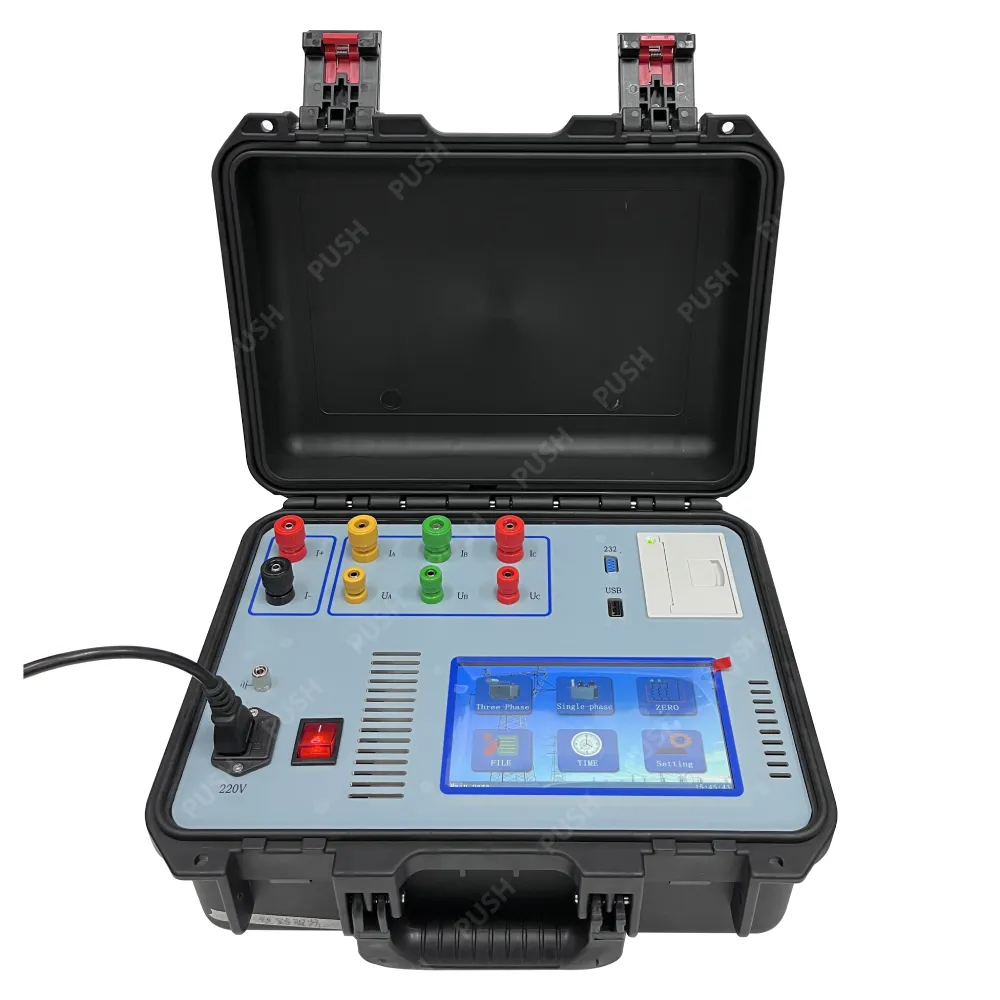 English
English


transformer oil testing
Transformer oil testing is a critical process for maintaining the optimal performance and longevity of power transformers, and understanding its importance is essential for any utility company or industrial operation relying on these powerful machines. With an in-depth knowledge of transformer oil testing, you can ensure the reliability, efficiency, and safety of your power systems, ultimately leading to cost savings and enhanced operational performance.

Transformer oil, primarily used for insulation and cooling in transformers, can degrade over time due to various factors like thermal, electrical stress, and contamination. This degradation can lead to equipment failure or fire hazards if not properly monitored and managed. By implementing a robust transformer oil testing regime, you can detect issues before they escalate, ensuring your systems remain operational without unexpected downtime.
Key transformer oil tests include dielectric breakdown voltage, moisture content analysis, acid number testing, and dissolved gas analysis (DGA). Each of these tests provides insight into the condition of the transformer oil and the health of the transformer itself.

1. Dielectric Breakdown Voltage This test measures the electrical strength of the transformer oil. A high dielectric breakdown voltage indicates good insulating properties, while a low value may suggest contamination or deterioration, potentially compromising the transformer's insulating capabilities.
2. Moisture Content Analysis Water is a major contaminant in transformer oil and can significantly reduce its insulating ability. By measuring moisture content, you can assess the level of contamination and take corrective action such as filtration or oil replacement to maintain optimal performance.
3. Acid Number Testing This test determines the acidity level of the transformer oil, which increases with oxidation and contamination. High acidity can lead to corrosion of internal components and reduced equipment lifespan. Regular monitoring and corrective measures, such as oil purification, can prevent acid build-up.
transformer oil testing
4. Dissolved Gas Analysis (DGA) DGA is the most informative test, providing early detection of potential problems. It analyzes gases dissolved in the oil produced by the degradation of the oil or insulation material. By identifying specific gases and their concentrations, you can diagnose potential issues like overheating, arcing, or insulation breakdown before they lead to catastrophic failures.
To ensure accurate and reliable transformer oil testing results, it's crucial to engage with a reputable testing laboratory that employs state-of-the-art equipment and skilled technicians. Look for laboratories that have ISO accreditation, as this indicates adherence to international standards of quality and consistency.
In addition to regular testing, consider implementing online monitoring solutions that provide continuous oversight of transformer oil conditions. These systems can alert maintenance teams to emerging issues in real-time, allowing for proactive interventions and reducing the risk of unexpected failures.
Investing in transformer oil testing is not merely about compliance with safety standards; it is an integral part of a proactive maintenance strategy that enhances the reliability and efficiency of power transformers. By leveraging expert insights and advanced analysis techniques in oil testing, businesses can improve their operational resilience, extend transformer life, and ultimately achieve significant cost savings in long-term maintenance and repair.
In conclusion, transformer oil testing—when performed with expertise and regularity—serves as a cornerstone of effective transformer maintenance. It empowers businesses with actionable insights to maintain transformer health, ensuring uninterrupted power supply and safeguarding against potential hazards. Engaging with industry-leading professionals and leveraging cutting-edge testing methodologies will enhance the trustworthiness and reliability of your power systems, positioning your operation for success in the ever-evolving industrial landscape.
-
Differences between open cup flash point tester and closed cup flash point testerNewsOct.31,2024
-
The Reliable Load Tap ChangerNewsOct.23,2024
-
The Essential Guide to Hipot TestersNewsOct.23,2024
-
The Digital Insulation TesterNewsOct.23,2024
-
The Best Earth Loop Impedance Tester for SaleNewsOct.23,2024
-
Tan Delta Tester--The Essential Tool for Electrical Insulation TestingNewsOct.23,2024





